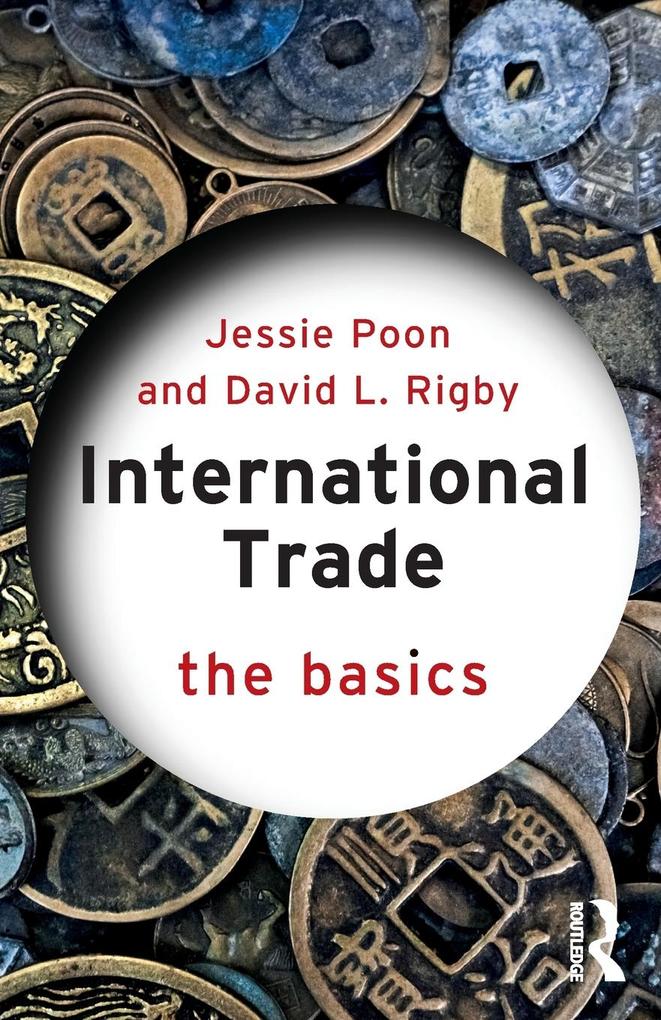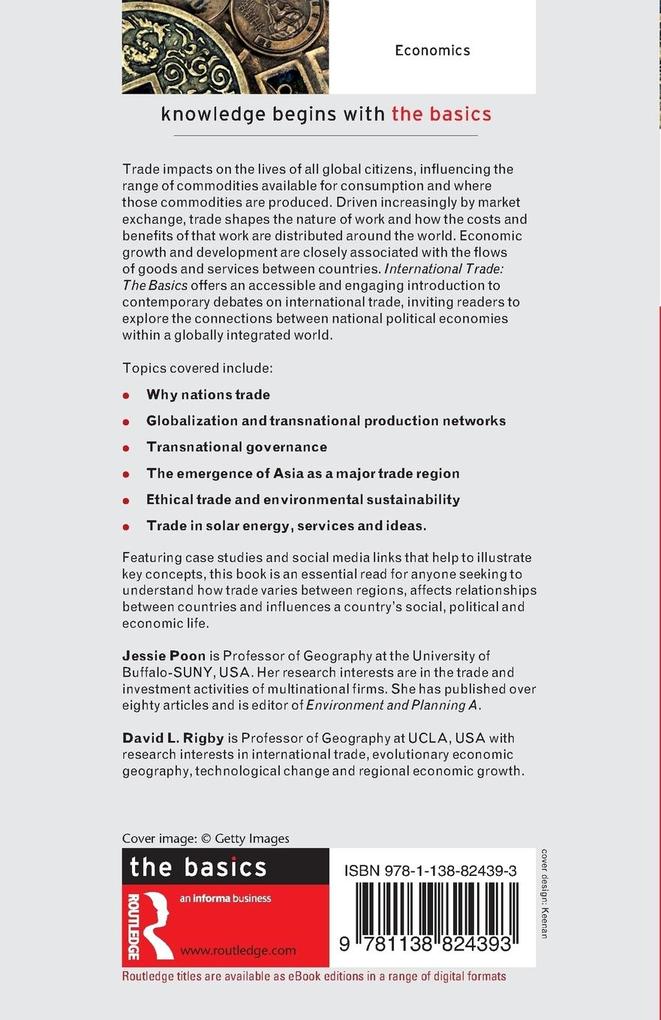Trade impacts on the lives of all global citizens, influencing which commodities are consumed and how and where they are produced, and affecting work, the environment and our social existence. It is associated with growth and development, and with deindustrialization and dependency. International Trade: The Basics offers an accessible and engaging introduction to contemporary debates on international trade, inviting readers to explore the connections between national political economies within a globally integrated world.
Trade impacts on the lives of all global citizens, influencing the range of commodities available for consumption and where those commodities are produced. Driven increasingly by market exchange, trade shapes the nature of work and how the costs and benefits of that work are distributed around the world. Economic growth and development are closely associated with the flows of goods and services between countries. International Trade: The Basics offers an accessible and engaging introduction to contemporary debates on international trade, inviting readers to explore the connections between national political economies within a globally integrated world.
Topics covered include:
- Why nations trade
- Globalization and transnational production networks
- Transnational governance
- The emergence of Asia as a major trade region
- Ethical trade and environmental sustainability
- Trade in solar energy, services and ideas.
Featuring case studies and social media links that help to illustrate key concepts, this book is an essential read for anyone seeking to understand how trade varies between regions, affects relationships between countries and influences a country's social, political and economic life.
Inhaltsverzeichnis
List of figures
List of tables
List of boxes
1 Introduction
The growth of trade
History of trade
Globalization and contemporary trade patterns
Objective of the book
Outline of the book
2 Trade theory
Comparative advantage
The Heckscher-Ohlin model
The Stolper-Samuelson theorem
Leontieff's Paradox
Terms of trade
New trade theory: economies of scale and imperfect competition in trade models
New, new trade theory: global outsourcing
3 Transnational corporations, trade and the global economy
Origins of TNCs and why firms internationalize
The growth of transnational corporations
Global production networks and commodity value chains
Capturing value in global production networks
TNCs and trade
4 Trade governance
Institutional theories
GATT and WTO
Geography of trade: integration and regional trade agreements
Is geography destiny? Regionalism and regional economic integration
5 Trade and development
Dynamic comparative advantage
Unequal exchange
Import-substitution and export promotion
Asian flying geese
6 Impact of trade
Special economic zones
Impact on labor
Trade and labor standards
Trade, jobs and wages
Ethical trade
Environment and sustainability
Environmental policy and trade agreements
7 Conclusion
Trends and directions
Glossary
Bibliography
Index





































